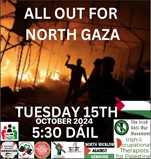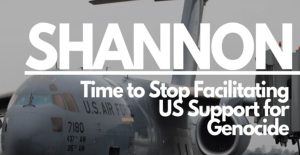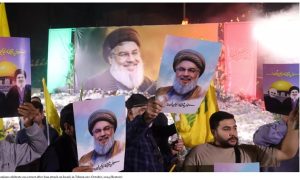Afghanistan – the graveyard of US power?
By Marnie Holborow
Afghanistan toll
· There have been major losses of civilian lives since the invasion in 2001 – possibly as many as 7,500. A UN mission recorded 1,013 in the first six months of 2009 alone which was a 24% increase on the same period the year before.
· Tens of thousands of Afghan civilians are also thought to have been killed indirectly as a consequence of displacement, starvation, disease, exposure, lack of medical treatment and crime and lawlessness resulting from the war.
· There have been 1,151 deaths of coalition troops in Afghanistan since 2001. 942 US soldiers have been killed, 242 British, 134 Candadian, 30 Danish, 36 French and 34 German. Irish soliders serving with the British troops have also been killed.
· Seven members of the Irish Defence Forces are currently deployed in Kabul as part of the International Security Assisitance (ISAF) which is a back up force to the NATO led invasion. Ireland is also contributing to the deadly technology employed in Afghanistan with a Dublin company, Acra Control Ltd, supplying material for the US drones which have killed civilians in Afghanistan and Pakistan.
Afghanistan – the graveyard of US power?
By Marnie Holborow
Afghanistan toll
· There have been major losses of civilian lives since the invasion in 2001 – possibly as many as 7,500. A UN mission recorded 1,013 in the first six months of 2009 alone which was a 24% increase on the same period the year before.
· Tens of thousands of Afghan civilians are also thought to have been killed indirectly as a consequence of displacement, starvation, disease, exposure, lack of medical treatment and crime and lawlessness resulting from the war.
· There have been 1,151 deaths of coalition troops in Afghanistan since 2001. 942 US soldiers have been killed, 242 British, 134 Candadian, 30 Danish, 36 French and 34 German. Irish soliders serving with the British troops have also been killed.
· Seven members of the Irish Defence Forces are currently deployed in Kabul as part of the International Security Assisitance (ISAF) which is a back up force to the NATO led invasion. Ireland is also contributing to the deadly technology employed in Afghanistan with a Dublin company, Acra Control Ltd, supplying material for the US drones which have killed civilians in Afghanistan and Pakistan.
It is difficult to believe now that Barrack Obama fought his election campaign on the assumption that switching US troops to the “ good war” of Afghanistan would be a vote- catcher. Today, Obama is tripping himself up explaining to a war weary America what more troops will be doing in a war whose purpose has been forgotten. Afghanistan is rapidly becoming Obama’s failure.
In the opinion of Admiral Mullen, chairman of US joint chiefs of Staff in Afghanistan, this year will be the most violent yet. The recent “surge” of 30,000 extra US troops reflect how ineffective the occupiers have become in the face of growing Taliban influence . Extra US troops – and another 7,000 from Nato – was accompanied by Obama’s grandiose pledge to start transferring security duties to the Afghans and begin withdrawing US forces by July 2011.
The transfer of power from the occupiers to Afghanis may be US official policy but those on the ground rule this out. Brigadier General Maharuddin Ghori, commander of Afghan forces around Nawa, believes it may be five years before Afghan troops can assume security duties from the Americans.
In reality, the notion of any US troops pulling out in July 2011 is sheer fantasy. Secretary of State Hilary Clinton has already admitted that US troops have no definite leaving date. Robert Gates, follow-on Secretary of Defense from the Bush administration, has suggested that the 2011 deadline should be revised. "We’re not just going to throw these guys into the swimming pool and walk away," is how the cynical war hand puts it.
NATO chief, Anders Fogh Rasmussen, is also in for the long haul. He recently declared in Kabul: "I know some are wondering how long international forces will stay; they are worried we will leave too soon," he said. "Let there be no doubt – the international community will stand with you and help in rebuilding your country until you are ready to stand on your own”. Perhaps he was inadvertently referring to Prime Minister Karzai, who has been dubbed the “ one-man- no- vote” victor of the last election.
The July 2011 deadline is all the more unlikely because it could take up to 11 months for the entire contingent of 30,000 new troops to be in place. (How many of those, one wonders, will be availing of hospitality at Shannon in the meanwhile?). Everybody from Washington to Kabul knows of the logistical problems – General McChrystal included. It is a measure of Obama’s desperation – fanned by setbacks in healthcare, the economy and global warming – that he is winging it on empty promises about withdrawal.
The quagmire
The main reason the US invaded – to root out Al Qaeda and Osama Bin Laden – has become something of a joke. Others about women’s freedom have been seriously undermined by testimonies from Afghan women who claim that rapes still go unpunished and that women are more in danger than they have ever been. Stopping the trade in opium is no longer talked about especially as Afghanistan continues to supply some 92 percent of the world’s supply of opium, which is used to make heroin.In a country which the UN development programme has rated at the bottom of virtually every development indicator including infant mortality, life expectancy, and literacy, it is obscene that the war has driven up opium production.
Afghanistan, quite simply, is a war that cannot be won. The country has not been named the graveyard of empires for nothing. From the Greeks to the Mughals, from the British to the Russians, Afghanistan has resisted – in geography and people. Its sheer scale defies domination. East of Kabul snow-covered peaks protect the eastern province of Paktika. Hundreds of miles away the Mars-like red desert of southern Kandahar province flanks Nawa, the ISAF patrol base in the Helmand Province. Larger than Iraq, Afghanistan maybe on the crossroads of western interests but it is also a place that has never been conquered.
Its peoples also defy the simplistic, empire-based notions of nation. In the gas- rich north bordering the Central Asian republics, Uzbek war lords have proved dangerous and vicious US allies. Women’s rights activist Malaya Joya, described one of these leaders, Ismail Khan, as the real terrorist that the west should shun. Further to the East, in the land rich with emeralds, lapis lazuli and opium, Tajiks have lent their support to Karzai’s government but are also close to the Talliban. To the west, alongside Iran, lies the ancient city of Herat a centre of learning dating back to the 15thcentury and whose Shia descendents so harried the soviet occupiers. The south is made up of Pashtuns who survive on poppy cultivation and who criss- cross the border with Pakistan, in Waziristan and the Swat valley, an area North East of the famous Khyber Pass. South Waziristan and the surrounding region have been described by US officials as "the most dangerous place on earth" since it is supposedly where al-Qaeda leader Osama Bin Laden is hiding. The US has launched many bloody attacks on Swat Valley. Driverless and cowardly drone planes have blown up wedding parties and killed those misfortunate enough to simply live in this forsaken spot.
What is going on in SWAT valley highlights how Afghanistan is a political tinder-box. What the US generals refer to as “Afpak” is not just an imperial term of abuse, it reflects the political reality that the British colonial “Durand Line” , the 1,600 mile border between Pakistan and Afghanistan, is as fictional as Kipling’s jungle book. The boundary has always been disputed and there is toing and froing in all manner of trades and people the between Afghanistan and FATA (the Federally Administered Territorial Areas )of Pakistan as this part is known. Hilary Clinton may rail against Pakistan for not clamping down on terrorism, but the reality is that the Pakistan Zadari government chooses to be ambiguous, especially when so many of its citizens oppose the US presence in the region.
EU occupiers are also nervous about a long and protracted war. A speedy withdrawal is becoming politically important to the various governments. There have been many casualties amongst US and British soldiers – now over 1300 – but alarmingly large numbers of other European soldiers have also lost their lives in this futile war. A year ago, near Kabul ten French soldiers lost their lives on one day.
Furthermore, amid the greatest crash in the US economy for sixty years, the cost of the war mounts ever higher. Obama may be forced to ask congress for $100bn to fund continued operations in Afghanistan. Even Nancy Pelosi, the Democratic Speaker, has said Obama can do the lobbying the House members himself because she refuses to do it.
Vietnam and Afghanistan
There are some similarities between the war in Vietnam and Afghanistan. Local resistance is uncowed and opposition to the imperialist attacker spreads out beyond the region itself. In both cases, the occupied land is politically connected to a bigger balance of power. Vietnam was the flashpoint of the cold war; in Afghanistan, despite its supposed goal of a “war on terror”, it is the war theatre of the middle east. The link between Palestine, Iraq, Lebannon and Afghanistan, and possibly Iran, is not just one made in the Pentagon; anti-war movements for the last decade have increasingly made the connection. One of the lasting legacies of the massive world-wide opposition to the war in Iraq in 2003 is a shift in popular opinion about the right of Palestinians and the more widely accepted view that Israel is an apartheid state.
However, in one respect, US military intervention is different to the cold war. Today the US, relatively weaker in economic terms and badly needs others to support its imperialist strategies. NATO was set up for this purpose, but the last decade has highlighted the degree to which the US now absolutely depends on the support of its allies.
The war in Afghanistan highlights the role of international institutions, such as the UN in the securing of “legitimacy” for US war aims. Regional groupings, such as the EU, see their interests as interwoven with the US’s. At the time of Vietnam major countries such as France and even Britain saw fit to stay aloof from military engagement. Today, for both economic and political reasons, the EU has increasingly acquiesced to the Washington consensus of the market economy, part of whose shock doctrine is to terrorise the middle east into submission and, as outlined in one Nato report, to shift the gravity of power inexorably eastward. Afghanistan has become part of reconstituting the West grip on world power, mainly prompted by the rise of China. The US has used its military power to fashion a geopolitical order based on the capitalist market economy in directions that suits it. Politically, with radicalism within immigrant communities within its borders and the backdrop of political crisis, it suits some European countries to tag along, variously under the themes of anti-terrorism and secularism, behind this aim.
It is this fact that sees unlikely countries such as Sweden, and Ireland, proving their loyalty to the free market American way, sending their neutral military personnel to occupy Kabul behind the ISAF pro-Nato flag.
But US strength –being able to corral the EU behind its phony war on terror – can also be its Achilles’ heel. Participating in occupation also involves casualties and this can re-invigorate anti-war movements across Europe. Opposition to Germany’s involvement in the war in Afghanistan has become a popular plank of the growing New Left. The death toll amongst British soldiers may yet re-ignite opposition to a British government whose spending on war seems an obscenity in these recession-dire times. Ireland’s increasing identification with EU militarization, as shown by its small number of military deployed in Kabul, is the other side of the same blind loyalty to US market capitalism that it showed in the boom years.
Furthermore, in the tensions of economic recession, as has often been the case in the past, imperialists often look to conjuring up other enemies to deflect from opposition at home. Some of Obama’s posturing about US security around the Detroit flight suicide bomber, was surely not unconnected to his own beleaguered political standing. There is some evidence that the lull in the US anti war movement that followed Obama’s election is coming to an end. In a recentNew York Times/CBS News poll, just around the troop surge debate, while 55 percent say it’s not a good idea to set a date to remove troops, almost 60 percent say they don’t want these troops to stay there for more than two years, and just over 30 percent say troops should come home within a year.
Ireland has a huge anti-war sentiment that, from Derry to Galway, Shannon to Dublin has drawn together sizeable protests against Israeli aggression in Gaza and Ireland’s involvement in the war in Afghanistan. Early in 2010 may well see the anti-war movement forced to mobilize again around the crazed violence of this obscene US-EU occupation of Afghanistan.
From the print edition of Socialist Worker No. 308






